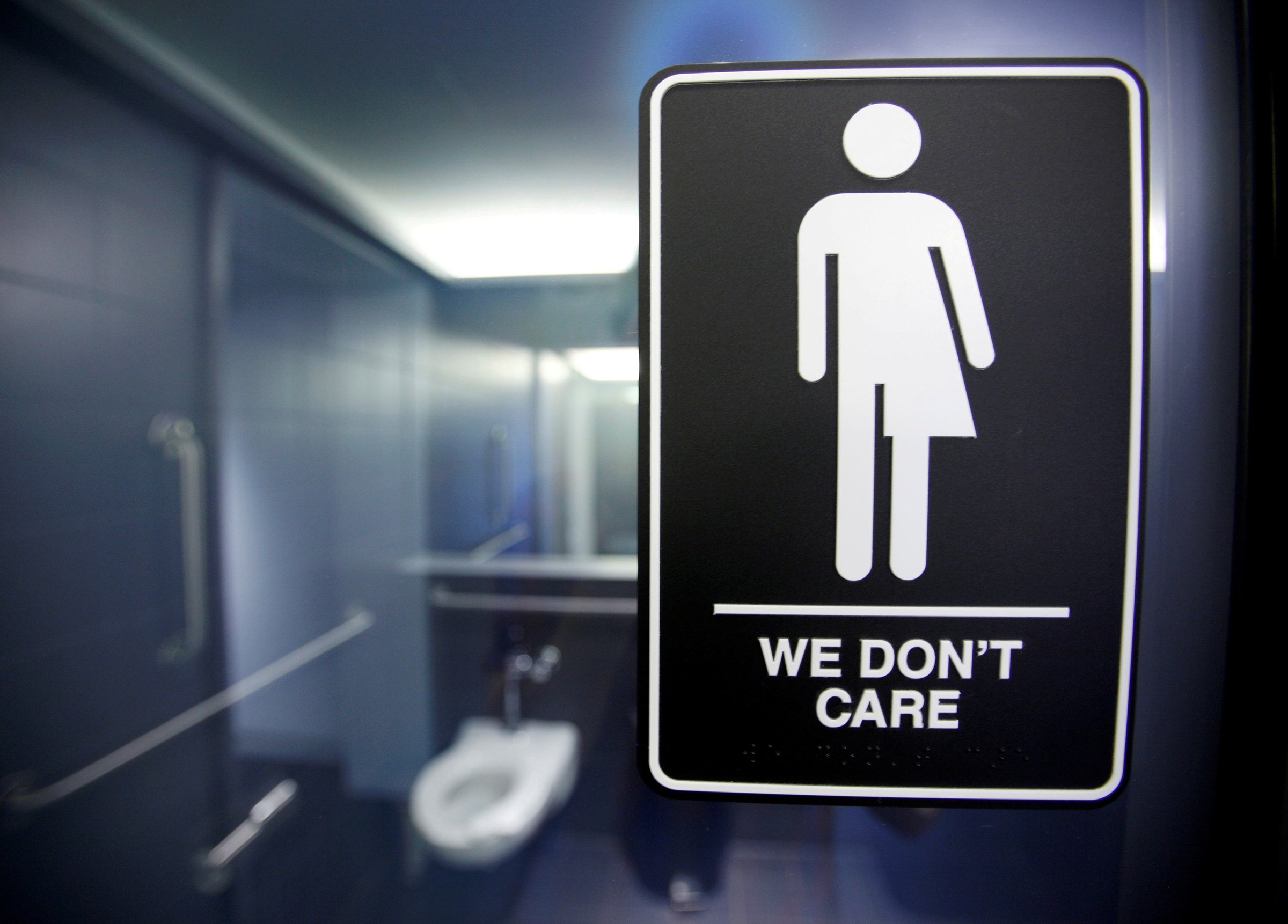
For transgender students returning to school this week, the rules on which bathrooms they can use remain unsettled.
An attempt by the Obama Administration to set recommended guidelines for school districts to follow was blocked by a Texas judge Sunday, one day before the first day of school in many districts across the country.
Diego Sanchez, director of policy at PFLAG National, an organization of LGBTQ individuals, families and allies, said that means many students will be returning to schools that will not allow them to use the bathroom that fits their gender identity.
“As a transgender man, I remember what it was like to be 17 years old or a teenager going to school, and how that first day of school is always filled with imaginary anxiety,” he said. “It makes me very sad that a lot of people today are having to go to school with very real anxiety.”
The injunction will not change the situation at many schools, however, since the guidelines were not legally binding, and nothing about the legal order prevents school administrators from following the guidelines if they want.
Jacinto Ramos, president of the Fort Worth Independent School District board, where decisions are made on a case-by-case basis, said it was business as usual when students returned from summer vacation Monday morning.
“No, not at all,” he said of whether the ruling was a big deal in his district today. “I heard it on the news, but as I visited campuses today for the first day of school, I didn’t hear anything about it.”
But the injunction from U.S. District Judge Reed O’Connor in Fort Worth could slow down efforts to force schools to adopt the guidelines in the future. The Obama Administration had said that it might cut off federal funding for schools that don’t follow the guidelines.
William Eskridge, a Yale Law School professor who studies legal and political rules on sexual minorities, said O’Connor’s decision could end up having serious ramifications for the Obama Administration. “Whatever implementation they might have done, now it’s stopped in its tracks,” he said.
The injunction focused on how the rules were made. The Obama Administration had argued that the transgender bathroom directive was simply a set of voluntary guidelines, so the 13 states that sued did not have standing in court. But O’Connor decided that the guidelines were the functional equivalent to a new federal rule, which meant they needed to be put through the usual procedure for rule making, such as a notice and comment period, and that the states had standing.
Texas Attorney General Ken Paxton, who helped spearhead the lawsuit, cheered O’Connor’s decision, saying, “We are pleased that the court ruled against the Obama Administration’s latest illegal federal overreach. This President is attempting to rewrite the laws enacted by the elected representatives of the people, and is threatening to take away federal funding from schools to force them to conform.”
Supporters of transgender rights argue that students are still protected by Title IX, a law that prohibits sex discrimination in any federally funded education program or activity.
“[School districts’] obligations under the law have not changed, and you are still not only allowed but required to treat transgender students fairly,” the American Civil Liberties Union said in a statement. “The scope of this injunction has no effect on the ability of other courts or lawyers representing transgender people to continue to rely on the federal government’s interpretations of Title IX or on prior decisions that have reached similar conclusions about the scope of federal sex discrimination laws.”
Mara Keisling, executive director of National Center for Transgender Equality, put it more simply: “It doesn’t take away any student’s rights, what this judge has done.”
The ruling could affect any transgender students who decide to sue for Title IX discrimination on their own, such as Gavin Grimm, the Virginia high-schooler caught in a legal battle over whether he can use the boy’s bathroom. If other students like Grimm sue while the injunction is in place, they won’t be able to rely on the Obama Administration’s guidelines in their case. “Private lawsuits will now be difficult, if not impossible to mount,” Eskridge said.
For now, the injunction is in place nationwide. The ruling could be appealed to the Fifth Circuit, whose rulings on related cases O’Connor cited in his decision. But the Supreme Court already temporarily blocked a decision by the Fourth Circuit Court of Appeals on Grimm’s case while the justices decided whether they want to hear an appeal, so the legal fight may soon be headed to the highest court in the land.
More Must-Reads From TIME
- The 100 Most Influential People of 2024
- Coco Gauff Is Playing for Herself Now
- Scenes From Pro-Palestinian Encampments Across U.S. Universities
- 6 Compliments That Land Every Time
- If You're Dating Right Now , You're Brave: Column
- The AI That Could Heal a Divided Internet
- Fallout Is a Brilliant Model for the Future of Video Game Adaptations
- Want Weekly Recs on What to Watch, Read, and More? Sign Up for Worth Your Time
Write to Tessa Berenson at tessa.Rogers@time.com